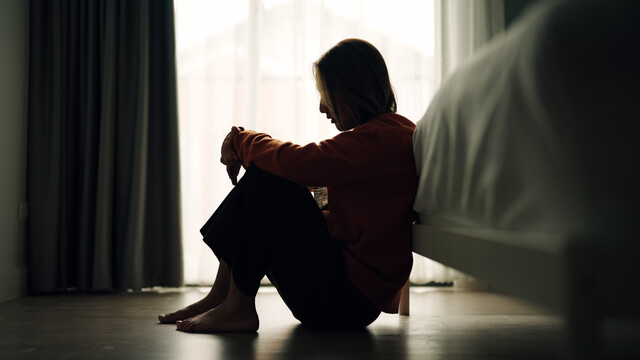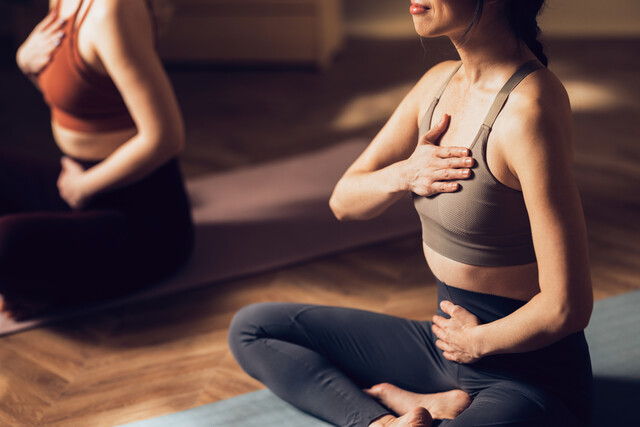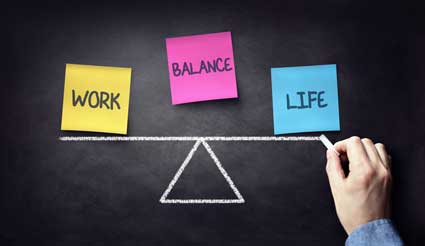The Relaxing Road to Happiness
- Holistic Healing
-
Discard Limiting Beliefs
-
Choosing How to Respond
-
When Worrying is OK
-
What a Stress-Free Life Looks Like
Holistic Healing
Holistic healing as a road to relaxation is the best, most balanced approach to living there is. You have a lot more control over stress than you ever thought. Sometimes it is as simple as recognizing stress for what it is, and then choosing how to respond. In other cases, especially when the stressor is out of your control, you look at other aspects of your life where you can choose balancing foods or behaviors that will provide the opportunity to relax when you can.
The Relaxing Road to Living is not a single activity, application, or intervention. The Relaxing Road to Living is understanding the effect that stress has on your body and minimizing either the stressor, or the impact. The article on Mindfulness is especially important because those skills are to be applied to every single aspect of your life. Being mindful; being attentive to what is going on in any given moment, provides us an opportunity to notice what the stressor is, whether it is mental, environmental, or physical. Then we have the opportunity to decide how best to address it.
You'll notice that "taking a vacation" was not listed as a relaxation technique. The reason for this is that the average American either a) does not take vacation, or b) takes work with them on vacation. Without learning to truly relax, taking a vacation will not be relaxing, in and of itself. How many times have you said, "I need a vacation from my vacation?" When you've said this, look back at your vacation. How many mindful moments did you spend? Did you utilize any breathing or meditation techniques, or did you try to fit in as many fun activities as you possibly could during your time off?
Taking a vacation and doing fun things while on vacation is an excellent exercise, but only if you are mindful of the overall effect the vacation is having on you. For instance, you might be partners with someone, and each of you have different ideas of the ideal relaxing vacation. For one person, going to theme parks and noisy night clubs is the perfect idea of a relaxing vacation, but for the other half of the partnership, sitting by the ocean watching the waves come and go for hours on end is perfection. How do you resolve this?
Communicate with your partner. Share your needs and desires with one another, and then arrange for each of you to have the opportunity to relax in the best way for you. Too many people just "go with the flow," thinking that by giving in and doing whatever everyone else wants to do is the best way to maintain a peaceful relationship. It might be, temporarily, but when you are stressed, especially on vacation, something is going to give sooner or later.
Most important, however, is to listen to yourself and your needs. Rather than being selfish, this benefits all your relationships because you can then be present with all of yourself to an activity, rather than regretting or resenting them the entire time. You'll find that you enjoy your life so much more by making time for yourself to truly relax on a regular basis.
Discard Limiting Beliefs
Limiting beliefs are those we carry around with us that often have their roots in our very childhood. You'll know which ones we're referring to; they sound a lot like:
-
"Who do you think you are?"
-
"Why do you want to do that?"
-
"We don't do those things."
-
"When are you going to get a real job?"
-
"Why did you buy that?"
-
"When are you going to start saving some money?"
-
"You spend money like a drunken sailor."
And the list can go on and on for pages and pages. The average person hears more than 75 percent more negative remarks about themselves than they do positive statements. Our own thoughts begin to put us down, setting us up for unnecessary stress and unhappiness.
Today is a really good day to begin questioning the validity of a statement made by our boss, friends, family, etc. If the statement is really true, then you can decide what to do about it. If the statement is not true (as is usually the case) then you have a choice now, don't you?
That choice is in how to respond, which we will discuss next.
Jim Rohn once said, "It is the set of our sails, not the direction of the wind that determines which way we will go."
This means that we all might be at the same starting point, but what we choose to do with what we have is what will determine where we will go. In terms of learning to live a relaxing life, we have a choice in just about everything we face.
When looking at "limiting thoughts" from the previous section, we see that we often carry around many statements that we've heard over and over again from the time we were children. We believe them because a) we heard them from someone we trusted and b) we have heard them many, many times.
But that doesn't make them true!
Let's sit with that a moment.
What if a statement isn't true? What if you aren't a lazy, shiftless, good-for-nothing bum? What if you can do anything you want? What if you don't have to accept responsibility for the fact that the economy has tanked and you aren't bringing in 10 percent more than you were last year?
What that means is you don't have to accept the statement as truth and fact. You can choose to ignore it. You can absolve yourself from feeling stress just because someone wants to blame you for something they can't control. Because they can't control it, they want to blame someone else. If you aren't responsible, don't let that someone be you!
Write down all the limiting beliefs you have lived with for most of your life, and not whether or not they are true. If they are not true, how does it feel to let go of your responsibility for it?
If it is true, what do you intend to do about it?
In action there is relief. In letting go of untruths, there is relief.
Wherever there is relief, there is reduced stress. Wherever there is reduced stress, there is the greater potential for relaxation. It is up to you to determine whether you have responsibility for something, and if you don't, then let it go. For good!
When Worrying Is OK
Worry is one of the major causes of stress, most specifically when we cannot do anything about the situation we are worrying about.
Here's one trick or tip for you to consider. If you generally read the newspaper, watch the news, or read news clips on the Internet, see how long you can go without any news input. Many heart attack patients are told to go cold turkey from the news.
Why?
Because 99 percent of all news reports are bad news!
And we can do nothing about that bad news other than add it to our already overpowering, overwhelming feelings of stress and tension. People say that they watch the news because they want the weather report. For one month, instead of watching 30 to 60 minutes of bad news for 30 seconds of weather, just check the weather online, or watch a weather-only channel. Skip all the other news.
Once you've broken yourself of the habit of watching the news, but you want to stay on top of things in the world, then read the paper or read news online, or subscribe to a magazine that summarizes the news by the week. In this way, you can stay abreast of current events without suffering the depressing and stress-provoking activity of worrying about things you can do nothing about.
Worry is only OK when you can do something about it.
If you are worried about making your mortgage payment and it is keeping you up, it might be worthwhile to get up and figure out how you're going to make that payment. Perhaps you need to hold off on paying something else for a day or two until your paycheck comes in. Whatever it is, the reason this is such a good tactic is that once you have figured out a strategy, then you can stop worrying!
Many people have found that they can now sleep through the night once they figure out how to manage something that is worrying them. Once done, they can then let go of their concerns and sleep comes easily.
And if you can't do something about the worry? You have to let it go. Losing sleep, gaining or losing weight, and elevating your blood pressure about something you cannot control is not helping you.
Many people say, "I'm too old to learn new tricks. I worry. That's just who I am."
Worry, for many, has become a habit. A very bad habit.
Unless you choose to release yourself from that habit, it will be at your doorstep every minute of every day.
We have transformed ourselves into an active participant, no longer content to float at the whim of the current any longer. We have touched on many strategies that we can bring into our daily lives. Pay attention to whatever it is that you're doing, whether you're reading, sitting by the seashore, spending time with family or friends, eating, sitting, walking, or petting the dog. Tune into your thoughts, how you're feeling both physically and mentally. Ask yourself why you're doing something, rather than just doing it because it is expected of you.
Be awake to your life, don't sleepwalk through it. Enjoy your life rather than wishing that a certain difficult time would pass you by. Remember what Jon Kabat-Zinn said, "As long as you are breathing, there is more right with you than wrong with you." Remember to be mindful wherever you are. While you're in the shower are you mindlessly thinking, or are you paying attention?
In many regards, both stress and relaxation are a choice that you can make. Choose wisely.
Tips for Living a Relaxing Life:
-
Try to be "in the moment" for a minute several times a day.
-
Notice your breathing. Then notice your emotions. Do either need to change?
-
At the end of the day, bring to mind one pleasant event of the day. Did you enjoy it thoroughly?
-
When you notice you're feeling stress, stop and consider it. How are you feeling physically? Emotionally? Do you have control over the situation? If so, what are you going to do about it? If not, how will you let it go?
-
Notice how you feel physically. Headaches, stomachaches, changes in your bowels, changes in your sleep patterns. Can you pinpoint what is causing these changes? Can you do anything to change them? If so, what will it be? If not, how will you let it go?
-
How are you honoring your personal needs? Are you eating right? Getting enough sleep? Do you have enough private time? Do you have enough intimacy with your partner? Do you need medical attention?
-
What is your favorite way to relax? Does it always work? If so, keep it up. If not, then incorporate more activities that you've learned about to see if you can find another one that will help.
By noticing stress in your life, and knowing that you are capable of facing it, you now have a power over it you didn't have before. You have choices, and with choice comes the ability to relax and let go. Stress is a condition in our life that was designed to keep us safe and healthy. Notice when stress is hurting you, and take the necessary steps to remove it or change your response to it.
According to Buddha:
Do not believe in anything simply because you have heard it.
Do not believe in anything simply because it is spoken and rumored by many.
Do not believe in anything simply because it is found written in your religious books.
Do not believe in anything merely on the authority of your teachers and elders.
Do not believe in traditions because they have been handed down for many generations.
Mindfulness is not Buddhism, but these words of Buddha are well spoken. Too often we accept things because we have heard it spoken by those we trust and respect, or because we have seen it written down somewhere. Instead, we must evaluate something and determine if it is true for us. If it is, then we can use it. If it is not true for us, we can choose to ignore it and find something better that works for us.



























